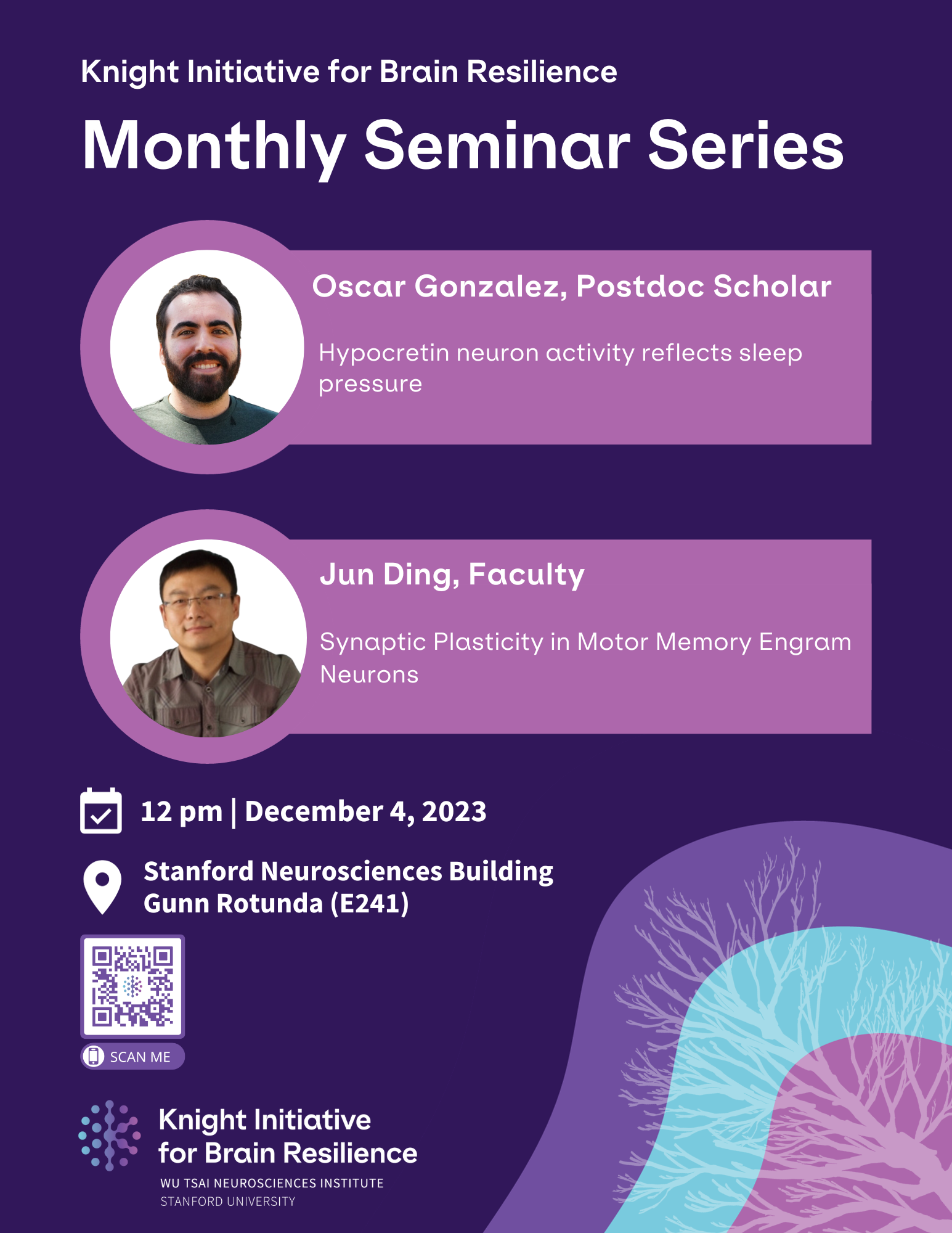Event Details:

The first Monday of each month, the Knight Initiative for Brain Resilience will host monthly seminars to bring together awardees, affiliated professors and students for a series of 'lab meeting' styled talks. Two speakers will discuss their brain resilience research, experiences in the field, and answer questions about their work.
Oscar Gonzalez, Stanford University
Hypocretin neuron activity reflects sleep pressure
Sleep is a universal behavioral state observed across all animals. Its role in learning and memory has been recently established, and disrupted sleep has been associated with various neurological and psychiatric disorders. As the amount of time spent awake increases, there is a buildup of pressure to sleep. Following sleep deprivation, this buildup of sleep pressure leads to homeostatic sleep rebound. How the amount of time spent awake impacts specific brain circuits, thereby driving it towards sleep, remains to be fully understood. It is likely that changes in activity of wake-promoting hypocretin neurons of the lateral hypothalamus may be impacted by sleep pressure. In this study, we explored the effects of sleep pressure on wake-promoting hypocretin neuron activity. We found that hypocretin activity differed during periods of high and low sleep pressures. To understand the underlying mechanisms driving this difference in activity, we performed ex vivo whole-cell patch-clamp and super-resolution array tomography to describe differences in the intrinsic excitability of and synaptic densities onto hypocretin neurons. Together, these data provide novel insights into the mechanisms underlying local circuit sleep pressure in wake-promoting hypocretin neurons of the lateral hypothalamus, which may drive wake/sleep transitions.
Jun Ding, Stanford University
Synaptic Plasticity in Motor Memory Engram Neurons
The interplay between motor cortex, sensory cortex, thalamus and basal ganglia is essential for neural computations involved in generating voluntary movements. Our goal is to dissect the functional organization of motor circuits, particularly cortico-thalamo-basal ganglia networks, using electrophysiology, 2-photon microscopy, optogenetics, and genetic tools.
The long-term scientific goal of the Ding Lab is to construct functional circuit diagrams and establish causal relationships between activity in specific groups of neurons, circuit function, animal motor behavior and motor learing, and, thereby, to decipher how the basal ganglia process information and guide motor behavior. We will achieve this by investigating the synaptic organization and function that involve the cortex, thalamus and basal ganglia at the molecular, cellular and circuit level.
